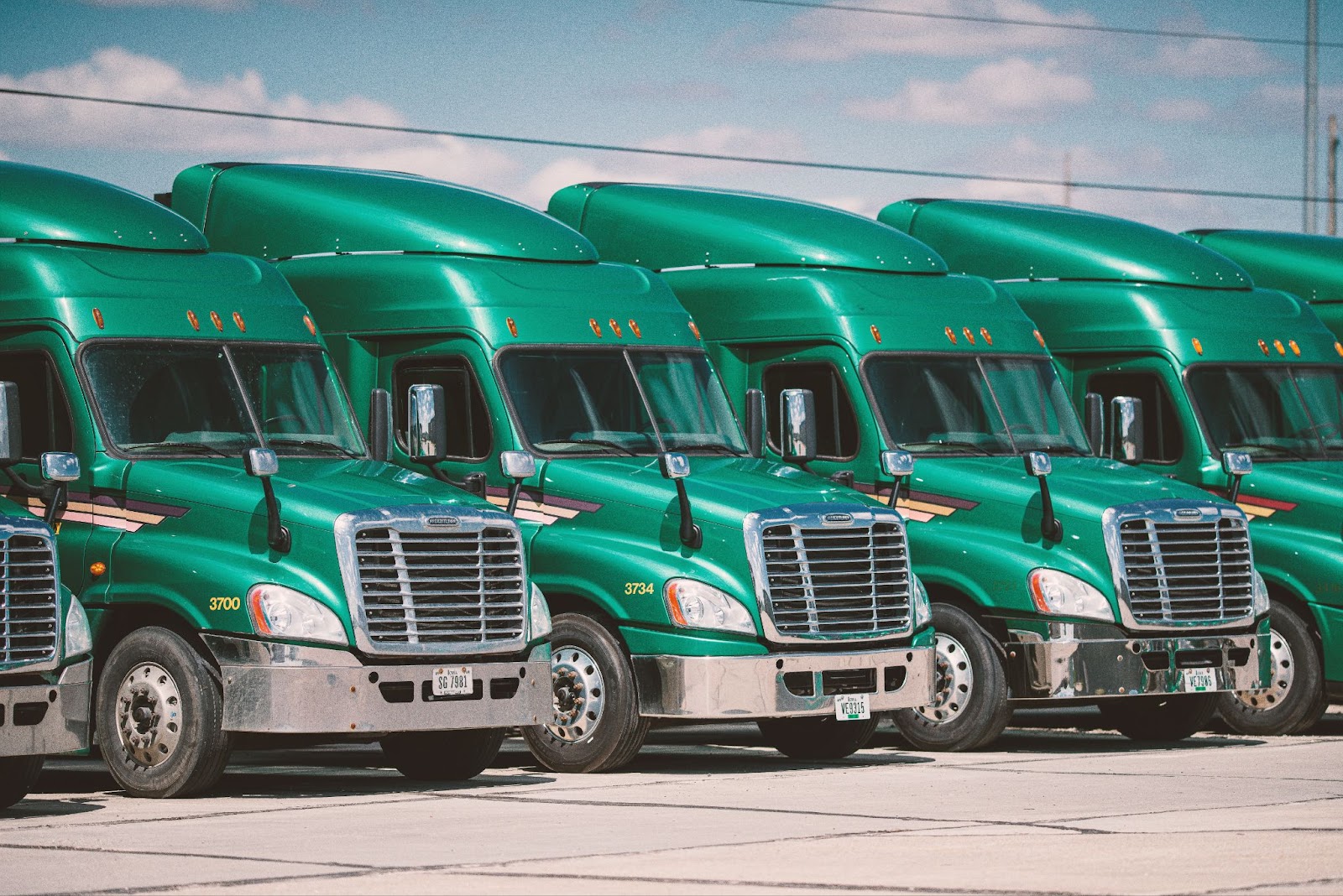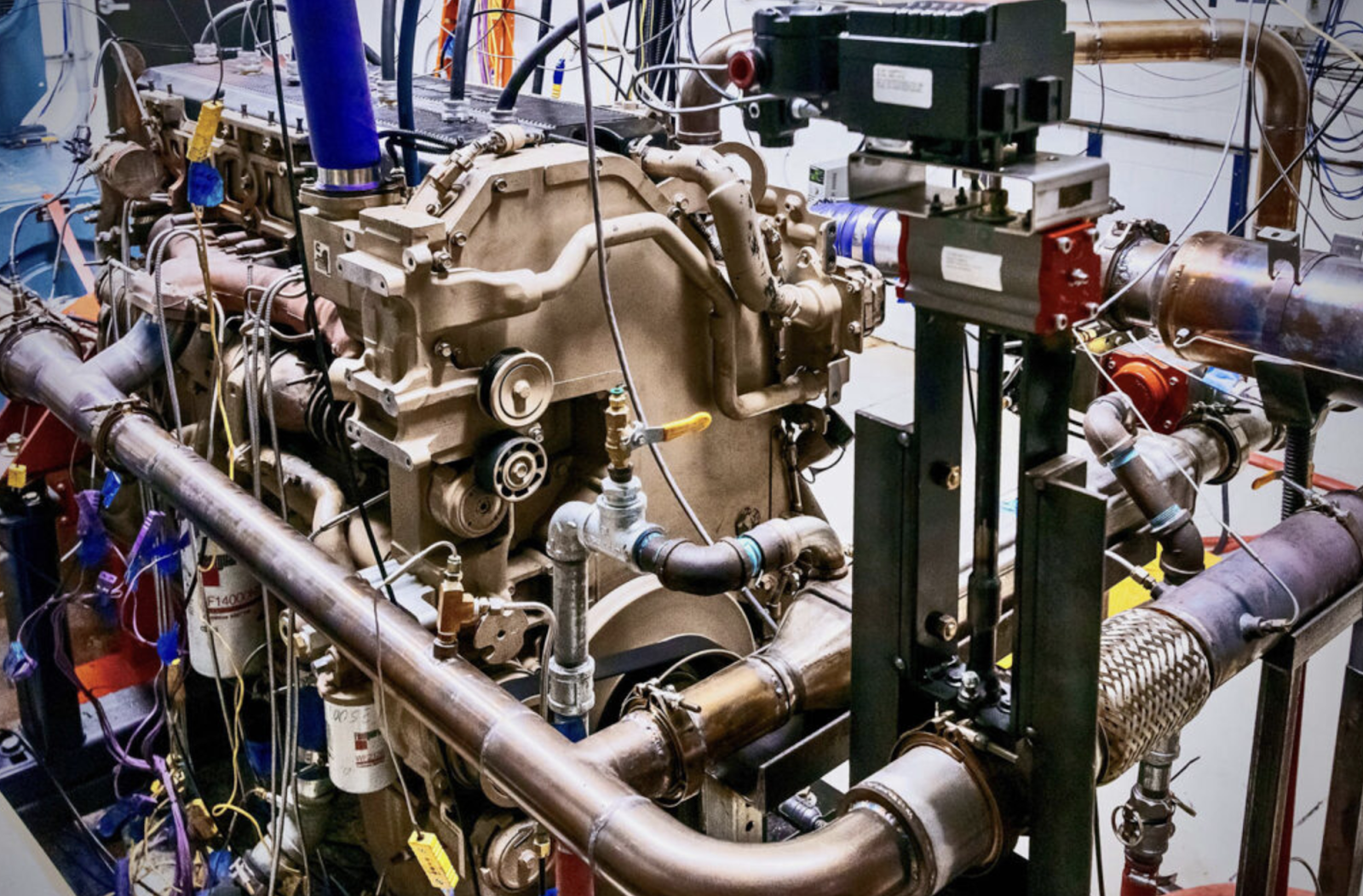One of the biggest obstacles in electrifying America’s logistic industry is getting 18-wheelers to switch to electric powertrains. Long-hauling shipping has been an area of concern for the federal government. More battery-electric options from companies like Tesla and Daimler are heading to market. However, charging stations are not up to scale, holding trucking back from going fully electric.
Considerable alternatives are coming to light, though.
BJ Johnson and Julie Blumreiter have a different idea: make engines emit fewer greenhouse gasses (GHG). The two are the founders of ClearFlame Engine Technologies, an Illinois-based startup innovating biofuel-burning engines. The Stanford Ph.D. grads founded the company after a fellowship with the Argonne National Laboratory’s Chain Reaction Innovations in 2016. At the lab, they learned about emission testing.
In March, ClearFlame announced it raised $30 million in Series B funding to bring its engines to market. That’s on top of another $17 million raised in 2021 thanks to Breakthrough Energy Ventures in Series A financing.
The company has raised around $50 million for pilot projects and has 50 employees.
ClearFlame engines use low-emission fuel like ethanol, methanol, or liquid ammonia. A 2021 study by the Department of Energy — published by Argonne National Laboratory — says these fuels are much more carbon-friendly than petroleum-based gasoline, with ethanol having 44–52% lower GHG emissions. Much of the U.S. ethanol supply comes from corn.
“The effort to achieve a sustainable clean energy and fossil-free future has to be inclusive and comprehensive,” Blumreiter said in a press release. “We welcome all partners who see our innovation as a means to make tomorrow’s ESG goals today’s realities.”

Photo Courtesy Brian Stalter
Some of America’s biggest trucking and energy generation firms have signed on with ClearFlame. Mercuria, John Deere, and Cummins are working with the startup to revamp trucking solutions. Some invest money, while others provide engine parts to continue ClearFlame’s innovations.
“We made this investment to stay on the leading edge of developments in renewable fuel technology,” said Pierre Guyot, senior vice president of John Deere Power Systems, in a 2021 news release. “ClearFlame’s compression ignition engine technology has the potential to reduce CO2 emissions while continuing to provide the performance and durability our customers expect from John Deere engines.”
Johnson and Blumreiter believe biofuel-burning engines are a more effective solution, especially for developing countries where electric infrastructure won’t be available for years. They have inked fleet vehicle deals, delivering class 8 semi-trucks with these low-emission engines.
The company says it will reduce carbon dioxide emissions by 160,000 pounds yearly, along with $32,000 in fuel cost savings for “one truck 100K miles per year” — equivalent to 3,300 trees planted annually.
“Fleets don’t have to compromise,” Fred Gill, senior vice president of sales, said on the company website. “It is the easiest path to environmental savings that we desperately need.”
In July, ClearFlame’s FuelAdaptive genset technology finished its Phase One trials. That included a 24-hour endurance test. Robert Schanz, research & development senior vice president, said in a press release that the tests were “very positive overall.”

Photo Courtesy ClearFlame Technologies
The second phase will involve testing with ComEd, an Illinois power provider. Kevin Cellucci, ClearFlame’s director of strategy, pointed to the need for clean power sources to “supplement and complement” electric vehicle grids. The hope is to cut down on blackouts and grid strain.
In 2020, the engine reliability was put to the test. Using a Cummins X15 engine in Omaha, NE, ClearFlame said its technology delivered more than 500 horsepower and 2,500 foot-pounds of torque.
Johnson hopes this will create an ethanol-based market.
“The results from ClearFlame’s first commercial platform tests are extremely promising and demonstrate a real-world, sustainable solution for diesel engine manufacturers as decarbonization requirements continue to evolve in the off-highway, heavy-duty, and industrial sectors,” Johnson said in a 2020 press release.
The feedback from the trucking industry has been promising. In a company blog post from September, trucking veterans expressed optimism for ClearFlame’s engines. Some feel this is a more practical solution to logistic decarbonization than embracing electric power before charging is at scale. Dr. Cathy Choi and Craig Barnes — who worked at Cummins, Caterpillar, and John Deere, respectively — believe ClearFlame could have the more viable method to reduce Scope 3 emissions from transportation.
“I met with ClearFlame co-founders Julie Blumreiter and BJ Johnson to learn more, and I walked away deeply impressed,” Barnes said in the blog post. “I spent many years at John Deere and Cummins working on advanced technologies for commercial vehicle engines and powertrains and reviewing many startup proposals. Most of them were not really viable. This was different.”
ClearFlame was listed on Fast Company’s “Next Big Things in Tech 2022.” Heavy Duty Trucking listed the firm as one of the “3 Truck Trends to Watch for in 2023.” There seems to be serious interest in investing and working with ClearFlame. Its technology could be a substantial step toward trucking decarbonization, even if it doesn’t involve switching to electric motors.





